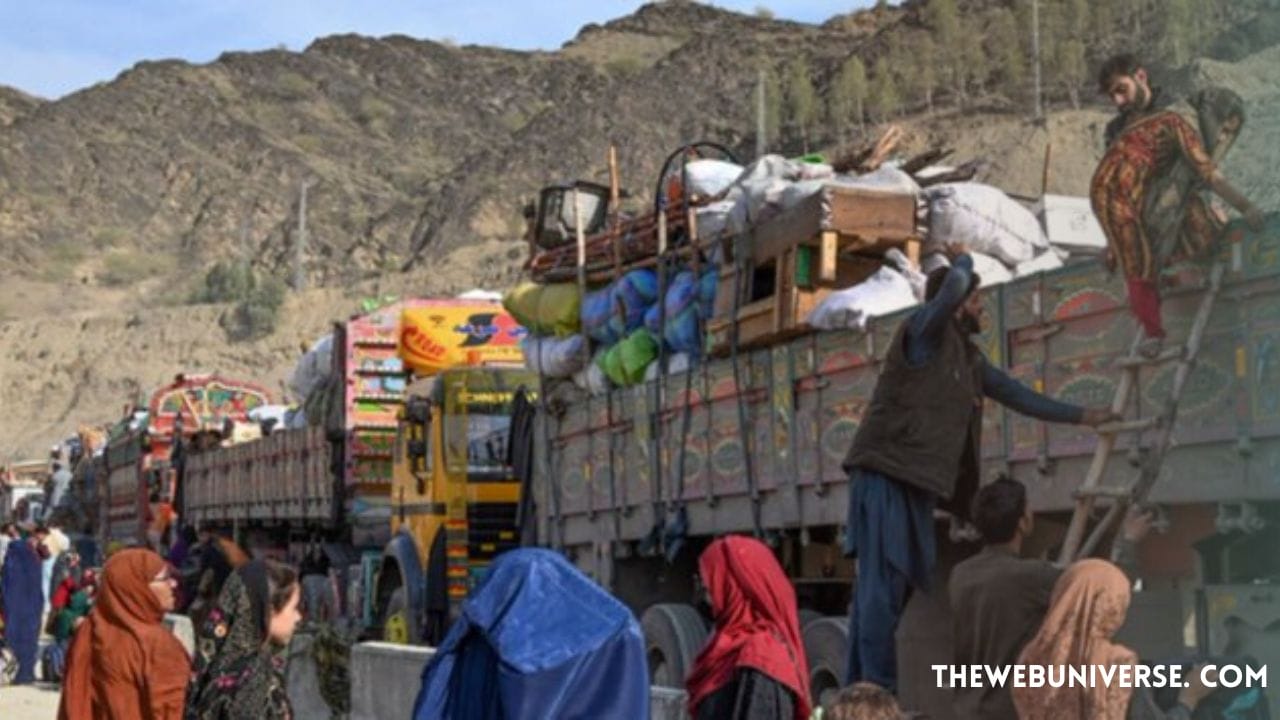The Exodus Begins as the Deadline Approaches for Illegal Aliens in Pakistan

As the clock ticks down to the deadline for illegal aliens in Pakistan, a significant exodus is underway. The government’s ultimatum for the voluntary return of foreigners staying in the country without proper documentation is set to expire, and while preparations for their round-up and deportation are in place, numerous logistical and political challenges lie ahead.
Voluntary Returns and Differing Estimates
Over the past month, nearly 100,000 illegal Afghan immigrants have voluntarily returned to their homeland via the Torkham and Chaman border crossings. However, the total number of illegal immigrants residing in Pakistan remains a contentious issue. Differing estimates add complexity to the deportation process, making it more challenging as time runs out.
Caretaker Interior Minister’s Stern Warning
Caretaker Interior Minister Sarfraz Bugti issued a stern warning, stating that strict actions would be taken against any Pakistanis found providing shelter to undocumented immigrants, including Afghans after the deadline expires. Renting out property to illegal immigrants, he emphasized, would make a person an accomplice to the crime.
Prime Minister’s Stance
Prime Minister Anwaarul Haq Kakar clarified that not all Afghans should be labeled as terrorists, but he acknowledged that the involvement of certain groups in illegal activities remains a significant concern. He stressed that it is the government’s responsibility to protect its citizens.
In-Line with Domestic Laws and International Principles
The Foreign Office reaffirmed that the decision to deport illegal foreigners residing in Pakistan aligns with the nation’s sovereign domestic laws and international principles. The Illegal Foreigners Repatriation Plan (IFRP) applies to all illegal foreigners, regardless of their nationality and country of origin.
Challenges in Karachi and Sindh
Authorities estimate that around half a million Afghans live in Karachi alone, with the Sindh government claiming to have identified 200,000 illegal immigrants in the province. However, an official source suggests that there are approximately 500,000 ‘illegal’ Afghan immigrants in Sindh, raising questions about where and how to accommodate them in holding facilities. Overcrowded prisons and logistical constraints pose significant challenges.
Sindh Home Minister retired Brig Haris Nawaz dispelled some concerns by stating that three ‘holding centers’ were being established in Sindh, aiming to repatriate 400-500 illegal immigrants to the Karachi holding center every week. The repatriation process will take place on Monday, Wednesday, and Friday, using buses and trains to avoid congestion.
Khyber Pakhtunkhwa’s Approach
Around 300,000 illegal Afghan refugees are based in Khyber Pakhtunkhwa, according to official documents. The process of shifting illegal immigrants to holding areas is expected to begin after the deadline expires. Those who choose to stay after the deadline will face arrest and charges for illegally staying in Pakistan. Judicial magistrates at these holding areas will oversee their screening, followed by transportation to the border for deportation.
Balochistan’s Stand
Balochistan’s Information Minister, Jan Achakzai, emphasized that there are no plans to extend the date for the repatriation of illegal immigrants. The government is resolute in its approach.
Punjab’s Comprehensive Crackdown
The Punjab government is gearing up for a comprehensive crackdown on immigrants staying illegally in the province. Data on Afghan nationals living in Pakistan with Proof of Residence (POR) cards or Afghan citizen cards has been collected, and district administrations will soon verify their status through thumb and finger-scanning via specialized devices. Foreigners’ property and businesses may be forfeited, and facilitators will face strict action. Complex cases, such as those involving marriages to Pakistani citizens, will be handled differently in the initial phase of the deportation process.
Final Preparations
The federal government has established a day-wise schedule of departure and has communicated with the respective provinces to ensure a smooth transition as the exodus of Afghan nationals and foreigners commences.
As the deadline for illegal aliens in Pakistan draws near, a complex and challenging process unfolds. While the voluntary return of many has already occurred, the path forward remains fraught with obstacles, including logistical, political, and diplomatic considerations. The government’s determination to address this issue is evident, but the road ahead is uncertain.
FAQs
What is the deadline for illegal aliens in Pakistan, and what does it entail?
The deadline is set to expire, and it requires all foreigners residing in Pakistan without proper documentation to either voluntarily return to their home countries or face deportation.
How many illegal aliens have voluntarily returned, and what challenges are associated with their deportation?
Nearly 100,000 illegal Afghan immigrants have voluntarily returned. However, the total number of illegal immigrants in Pakistan remains uncertain, making the deportation process more challenging.
What penalties are in place for Pakistanis found sheltering undocumented immigrants?
Pakistan’s caretaker Interior Minister has warned of strict actions against Pakistanis providing shelter to undocumented immigrants, including Afghans. Renting property to illegal immigrants is considered a crime.
What measures are being taken in various provinces, like Sindh and Punjab, to address this issue?
Sindh is setting up ‘holding centers’ for repatriation, while Punjab is conducting a comprehensive crackdown, verifying the status of Afghan nationals living in the province through advanced technology.
How is the federal government coordinating the repatriation process, and what are the implications of this exodus?
The federal government has established a schedule of departure and coordinated with provinces to ensure a smooth transition. The exodus presents complex challenges, including logistical, political, and diplomatic considerations.






